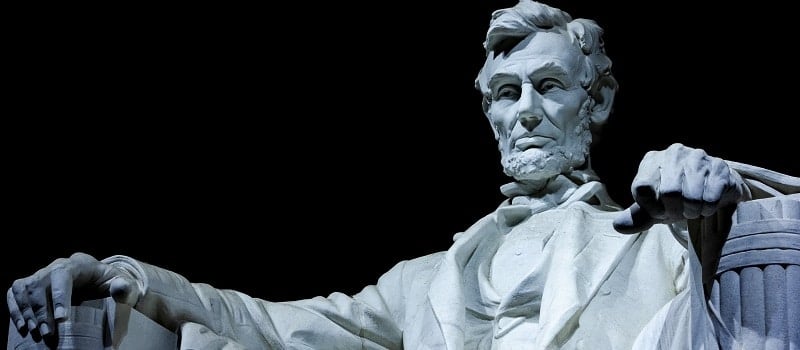The English language is full of idioms like “jump on the bandwagon.” While you may hear this phrase being used have you ever stopped to wonder what it actually means?
The phrase “jump on the bandwagon” is frequently said when someone decides that they want to join up with other people who are doing something that is either fashionable or that’s likely to be successful. In this regard, it means they joined forces, came together, or held hands with these people.
What the Phrase Means
Simply put, to “jump on the bandwagon” means that you’re joining in on an activity simply because it’s so popular or fashionable. It can also mean that you’re changing your option because another opinion has become more popular. In either regard, your reason for doing so is to enjoy the success that the activity or opinion has and not because you’re truly interested in it. This is especially true when you’re talking about a politician.
Sometimes other verbs are used in place of the word “jump.” These may include climb, join, get, and leap. You may even say that someone is “bandwagon-jumping” or that “someone’s bandwagon is rolling” which means that an activity or movement is gaining in support. Regardless of how this phrase is used the expression is typically used in a way that shows disapproval. Some of the other alternative forms of this phrase include:
- Climb on the bandwagon
- Hop on the bandwagon
- Jump ship
- Jump the track
Origin of the Phrase
The idiom “jump on the bandwagon” has a long, interesting history behind it. To understand this history you must first understand that in nineteenth-century America a “bandwagon” was a horse-drawn platform that a band would perform on at the front of a circus parade. In 1848 the phrase was first seen when the famous circus clown, Dan Rice, began using his bandwagon to transport politicians around town. The politicians would use the music to attract people to whom they’d then speak.

Although this was the first use of the word, it wasn’t until 1855 that Phineas T. Barnum first used the term in his autobiography, “The Life of P.T. Barnum” in which he wrote, “At Vicksburg, we sold all our land conveyances excepting four horses and the ‘band wagon’.”
The phrase “jump on the bandwagon” still hadn’t originated yet even though the Oxford Dictionary of Quotations does attribute the very first use of this phrase to Barnum. Nevertheless, there is a lot of doubt that Barnum actually said it because this would have been out of character for him. Other sources state that they believe that Abraham Lincoln was actually the first person who used this phrase. This is because when you look at his ‘some of the people’ dictum as it appeared in print in several American newspapers you not only find the phrase “jump on the bandwagon” but you also see things like “Lincoln once said.” These were written after Lincoln’s death when Barnum was old and weak.
There are some people who’d also argue that Abraham Lincoln coined the phrase “jump on the bandwagon.” Instead, they say that the phrase should first be attested to Theodore Roosevelt. This is because he wrote a letter in 1899 in which he used the phrase to show one’s allegiance to a politician. Here in this letter, he is quoted as writing, “When I once became sure of one majority they tumbled over each other to get aboard the bandwagon.”

In any regard, the transition of this phrase to the figurative meaning that we now know it by was completed by the 1890s. This can be seen as people started to actually pay attention to the fact that bandwagons would capture an audience’s attention. As such, politicians were now quite commonly using bandwagons in parades throughout the various towns they stopped in during their campaign trails. Of course, this is something that did date as far back as Dan Rice. However, these bandwagons weren’t quite as popular back then. Over the years as their popularity grew politicians and other people would seek to rent out seats on these bandwagons as they went through a town. Doing so led many to believe that the original campaign’s success would rub off on those who rented the seats. Hence the term “jump on the bandwagon” came to mean joining up with someone or something successful.
There are records of this phrase being used in political speeches throughout the 1890s. However, during this time the phrase oftentimes held a negative connotation. Voters were warned that they shouldn’t “jump on the opponent’s bandwagon in haste.” For this reason, many candidates wouldn’t even admit that they had a bandwagon.
When this phrase made the transition to jumping into anything that’s popular isn’t clear. However, this has clearly happened as we have come to use the phrase “jump on the bandwagon” in this way today.
Barnum’s Contribution to the English Language
While there’s no doubt that Barnum didn’t popularize the phrase “jump on the bandwagon,” we can’t overlook the fact that he did popularize a few other words in the English language: ‘Jumbo’ and ‘Siamese twins.’ These are words that he coined after members of his circus.
Jumbo was the name of a giant elephant that was housed in the London Zoo. He was purchased by Barnum in 1882 and then exhibited in his shows. Unfortunately, the elephant wasn’t very lucky. It died in 1885 when it was struck by a train. Upon his death, Barnum had Jumbo’s heart cut out and his torso stuffed and mounted so that he could continue touring with the circus. In 1975 it was reduced to 14 ounces of ash by a fire. Now it resides in a peanut butter jar. Like other idioms, this history was picked up on and used in the word’s definition as stated by John Badcock in 1823 when he wrote “Slang: A Dictionary of the Turf.” Herein the word jumbo was defined as “a clumsy or unwieldy fellow.”
Another way in which Barnum contributed to the English language also came from his days in the circus. At that time he had a set of twins by the name of Chang and Eng Bunker. These brothers were joined at the hip, something that Barnum termed as being ‘Siamese twins.’
So while Barnum didn’t coin the phrase “jump on the bandwagon,” he did create a few popular words in the English language.
Understanding Idioms
Knowing that “jump on the bandwagon” is an idiom, you may wonder what this means. Idioms are phrases that mean something totally different from what they’d mean if they were taken literally. For instance, this phrase means that the person joined forces with someone who’s popular. It derived its meaning from when politicians used to ride on a bandwagon. Today it’s used in more than just political situations.

When an idiom is used correctly it can draw in readers and help awaken their senses. This is why idioms are used much more frequently than native speakers are aware of. In fact, there are approximately 25,000 of these expressions in the English language alone. There are also idioms found in other languages. Many times these idioms are a humorous way of describing something that’s happening in the culture such as its beliefs. While these idioms typically originate from literal meanings in pop culture, these meanings are oftentimes soon forgotten about.
More English Idioms
Example Sentences
Understanding the meaning of the phrase “jump on the bandwagon” is one thing but you may now want to be able to use it in some of your conversations or writing. Here are a few examples of sentences that will help you get started with doing so:
- You know that it must be good news when the local politicians can’t wait to jump on the bandwagon.
- We’re not quite as ready to jump on the bandwagon as they are.
- Although there are a lot of people who are excited to jump on the bandwagon they’re just as excited to jump off when something goes wrong.
- It didn’t take the politicians long to jump on the bandwagon with this one.
- Maybe if a few more celebrities were to jump on the bandwagon all of America would do so as well.
- Since a lot of companies may try to jump on the bandwagon we need to make sure his image’s quality is protected.
- I don’t like people who jump on the bandwagon simply because the team won.
- Since he’s now the president, she’s decided to jump on the bandwagon.
- Recently a lot of politicians have decided that they’ll jump on the bandwagon.
- When a few of the politicians won elections because they promised to cut taxes many others jumped on the bandwagon.
Conclusion
Regardless of where the phrase “jump on the bandwagon” originated, its meaning is still the same. This is a phrase that’s frequently used when someone decides that they want to join forces with someone who’s doing something that’s either fashionable or successful. For this reason, it’s quite commonly used when politics are being discussed.
Shawn Manaher is the founder and CEO of The Content Authority. He’s one part content manager, one part writing ninja organizer, and two parts leader of top content creators. You don’t even want to know what he calls pancakes.

